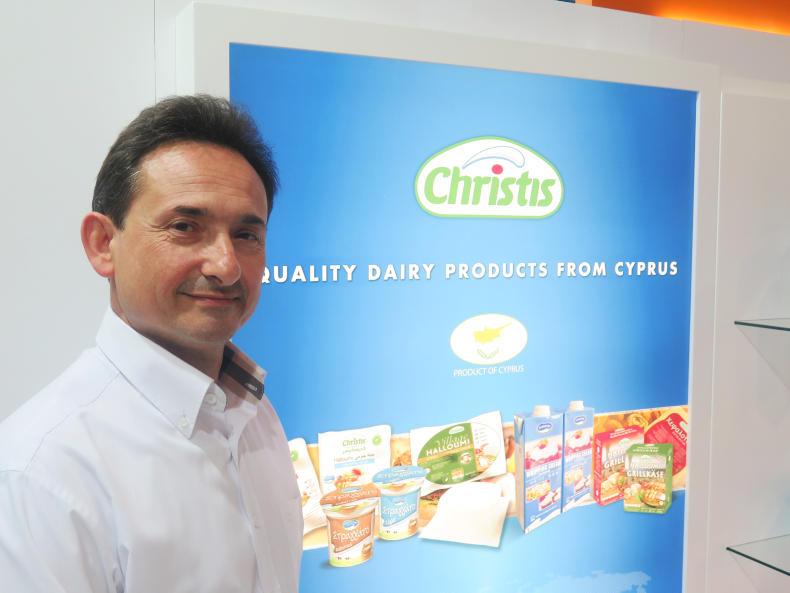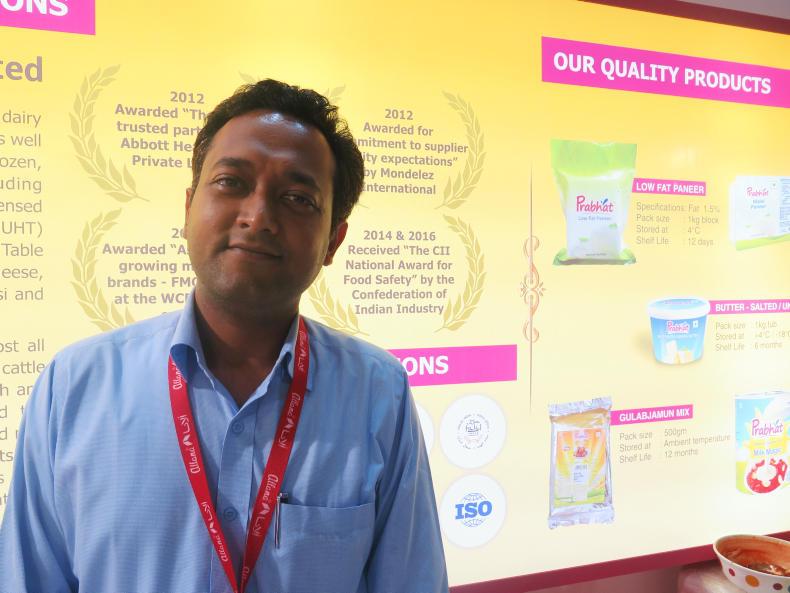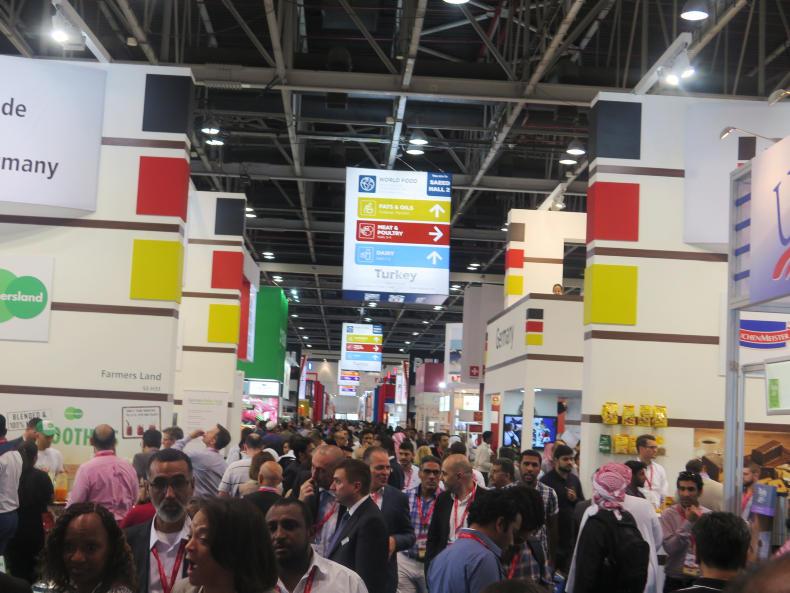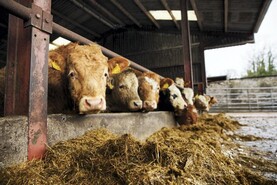One of the world’s largest food exhibitions took place in Dubai this week.
Gulfood saw some 100,000 food buyers from across the globe gather in the Middle East, with 21 Irish companies selling their wares. These included Ornua, Dairygold, Ashbourne Meats, Green Isle and Dawn Meats.
Gulfood coincided with a Department of Agriculture and Bord Bia-led trade mission to the United Arab Emirates and Saudi Arabia.
The Irish Farmers Journal spoke to international dairy processors at Gulfood to see what products they produce, where they export to and how much they pay farmers for their milk.
Cyprus currently has the highest milk price in Europe.
Farmers are receiving 67c for every litre supplied. Spyros Bonatsos is chief of exports with Charalambides Christis dairy processor in Cyprus and he explained to the Irish Farmers Journal at Gulfood that a traditional dairy product is driving demand for milk there.
“The major produce that we are exporting and that we are producing is halloumi cheese,” he explained.
There are two types of halloumi cheese; one made from sheep and goats’ milk and the other from sheep, goats’ and cows’ milk. Spyros said the latter is the more popular.
He added that while the product is now world-famous, there are concerns over Brexit.
“We are exporting all over the world. We are exporting to Mexico, New Zealand, Taiwan, but the biggest market for us is the UK.
“This (Brexit) is a threat, there is always a threat but I remain positive that things will stay as they are.”
Spyros explained that Cyrus has some 500 dairy cow farms with “a few thousand sheep and goat farms, but they are much smaller”.
“We buy milk at 67c/l... it is the most expensive milk in Europe... it is so expensive because of the weather. We must buy 80% of the animal feed for our cows,” he added.
Listen to “Getting 67c/l for milk in Cyprus” on Spreaker.
For many years, the Greek dairy industry was built on feta cheese, but the increase in the demand for protein from a more active population has seen a spike in demand for its yogurt.
Andreas Mylonas is the export director with Greek dairy processor Kri Kri Dairy Company.
“The main product which is the huge trend and success worldwide is the Greek yogurt... it is a product thicker in texture and higher in protein.
“(Fitness) is the big trend. In the whole of Britain, in the United States, in the Netherlands, Italy, Germany, Greek yogurt is the big trend in the yogurt industry. In the whole of western Europe, we can see that the whole yogurt industry is stagnant and the only sub category that is growing very fast is Greek yogurt,” Mylonas said.
Milk with such high protein comes at a price for processors like Kri Kri. Greek dairy farmers are well paid for the milk they produce.
“Depending on quality and such things... (the price paid to farmers) is more than 40c/kg (41c/l). It’s quite expensive, but it is a high-quality milk (with) a high quantity of protein.”
Listen to “The goodness of Greek yoghurt” on Spreaker.
Piyush Jhuriya is a the manager of the Prabhat dairy company. He told the Irish Farmers Journal that the industry has been growing rapidly in India.
The dairy sector is made up of some 75m farms, with buffalo being the main breed. The average farm size is just 2.5 cows, but farms have been upgrading and adopting more commercial breeding systems, such as the introduction of the Holstein breed.
“It has been growing a lot. People have started to recognise the value of cows and how to treat them. We have really adopted this at our end; how to take care of the cows, advising farmers on breeding practises. We pay our farmers approximately 32 Indian rupees per litre (45c/l),” Piyush said.
On the back of the improvement has come an increase of export market penetration.
“We are pushing up exports and we hope to get into new markets. We are already exporting to Bahrain and Jordan, and we hope to have access to Sri Lanka in the next few months, and we hope to get into the Middle East in time too,” Piyush said.
Gulf States trade mission: the timeline
In pictures: inside Almarai’s dairy farm in the Saudi desert






 This is a subscriber-only article
This is a subscriber-only article












SHARING OPTIONS: